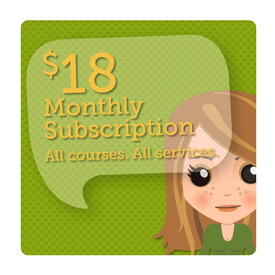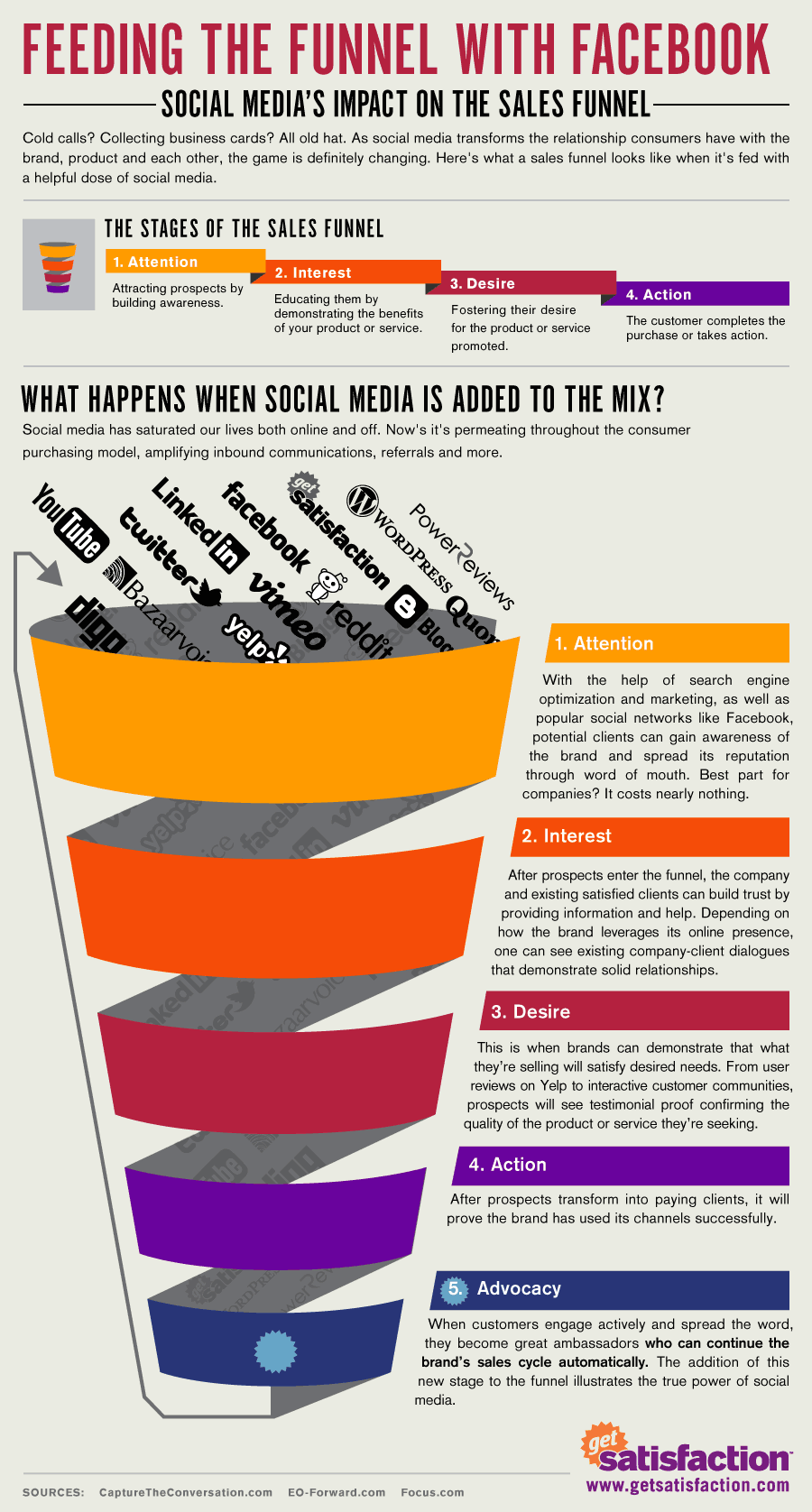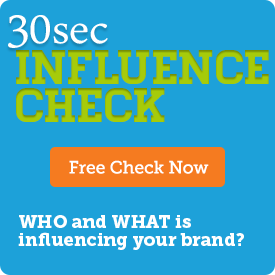Some businesses forget that social is about connecting with people. Most businesses still don’t see social networks as places to socialize but as mediums to broadcast and that’s a very big and costly mistake.
Advice, resources, and insight on how to make social engagement work to grow your business and career.
Viewing entries in
Listening & Engaging
Some businesses forget that social is about connecting with people. Most businesses still don’t see social networks as places to socialize but as mediums to broadcast and that’s a very big and costly mistake.
Where Is The Efficiency In Only Using One App For Messaging? Spaces, Linkedin, Facebook, and Hangouts Messages. First of all, most of us only use an app when we get pulled in with a notification.
They are all the same in your notification tray.
What makes social media an essential tool for social enterprise is
The society-wide "breaks" that we enjoy for Christmas, Winter Solstice, Eid, or even just Victoria Day or the 4:20 are all occasions that we agree to be together and to not work.
“all social media is fundamentally about relationships and people connecting to people — not companies or brands”
If you can master growing and staying in touch with a network of people on Twitter you'll find it a lot easier on the other networks.
If social media monitoring is about communications, measurement is about business strategy.
a simple, common sense, social media policy and saved it in formats for download that you can print and staple to a common wall in the office, if necessary.
Influencers get the word out with the same reach and authority that TV, radio, newspapers, and flyers did in the former media era. It is through people sharing that things spread now.
Facebook is now the great social forum where businesses can get to know their communities and build a social reputation. Budgets and expectations should be built around this understanding.
Sharability is the ingredient that must exist in every piece of content you share or you are wasting your time/investment.
It turns out that storytelling, especially through a visual, "moving picture" medium like video, TV, or film is how we see things in our minds so they speak to us in our most natural language
The best content a business can share is their own stories. If a client cares about what you sell, they will care about the stories you have to tell. But how the story is told and shared matters a great deal and there are a variety of ways that can be done with both large budgets and no budgets.
Buzzwords are like passwords that make people feel like they are locked out if they don't fully understand their meaning.
 David Hayward, known around the world as the "naked pastor" is an expert on building nurturing, connected, loyal communities of people who care about what the community stands for - what every social business should strive for.
David Hayward, known around the world as the "naked pastor" is an expert on building nurturing, connected, loyal communities of people who care about what the community stands for - what every social business should strive for.
 His nakedpastor cartoons and content is viewed and shared by over 200,000 people each month and he just started a brand new democratic, online community called The Lasting Supper "for people who want to transition into a life of personal, intellectual and spiritual freedom and independence".
His nakedpastor cartoons and content is viewed and shared by over 200,000 people each month and he just started a brand new democratic, online community called The Lasting Supper "for people who want to transition into a life of personal, intellectual and spiritual freedom and independence".
David is NOT here to talk about spirituality (although you probably wouldn't have a hard time getting him offline in a sidebar discussion), He is leading the discussion to focus on what social businesses need to figure out more than anything else: how to build a community around your brand.
 As the Learn by Sociallogical™ Mentor On-Call for October, David will respond to comments posted to the site, blog his own thoughts on growing communities and on a few lessons in our Learn courses for business, and make sure mentorship stays at the heart of how we learn throughout the month.
As the Learn by Sociallogical™ Mentor On-Call for October, David will respond to comments posted to the site, blog his own thoughts on growing communities and on a few lessons in our Learn courses for business, and make sure mentorship stays at the heart of how we learn throughout the month.
Leave a comment in the courses or in the open forums this month and David is sure to respond. He's a bright, thoughtful guy and we are very happy to have him as our very first Mentor On-Call!
Add David as a Friend so you can talk to him about building your own brand community. You can find him in Learn by Sociallogical™ at http://learn.sociallogical.com/members/nakedpastor
 90% of customers will recommend brands after social media interactions (read the story) and that should make things very
90% of customers will recommend brands after social media interactions (read the story) and that should make things very  clear for every business: if you are not interacting with people you are letting someone else steal your influence.
clear for every business: if you are not interacting with people you are letting someone else steal your influence.
This study and others validate a social business posture because it supports a long-held understanding of human motivation that when people feel important, cared for, appreciated, they respond positively and with support. By talking, listening, and helping consumers, companies endear themselves to consumers in a very human way. That's social.
Showing your customers that you appreciate them and that they are important to you is and always will be the best way to earn and keep their loyalty and to spread endorsements for your brand.
Online social channels allow a business to do this in a very real and manageable way and should be a priority for any company that considers loyalty and customer recommendations to be important.
I feel a little silly explaining this but here goes: listen to what people are saying, talk to them, understand them, and show them the kindness that expresses your appreciation for them and what they have to say. These are basic communication skills for decent people and they are just as important online.
"The deepest principle in human nature is the craving to be appreciated." - William James http://t.co/KkCrbmyRjn #learnsocial
— Sociallogical™ (@soclogical) October 11, 2013
Create a list of those who influence your brand in a positive way online so you can pay special attention to them. They are as important to the success of your company and your future sales as many other factors that you invest in.
The worst thing you can do is let the supportive efforts of your influencers and advocates go unnoticed and unappreciated.
This is a brief message leading into the Canadian Thanksgiving weekend. What do you do to show your online community that you appreciate them and are thankful for their support? Please tell me in the comments. I want to know.
 Richard, Vincent, Katherine, Margaret, Lawrence, and Elizabeth have all been lost to me online because I have been looking to connect with Dick, Vinny, Kate, Peggy, Larry, and Beth - the names I know them as.
Richard, Vincent, Katherine, Margaret, Lawrence, and Elizabeth have all been lost to me online because I have been looking to connect with Dick, Vinny, Kate, Peggy, Larry, and Beth - the names I know them as.
Just because your parents named you Stephen doesn't mean you are disrespecting them by being Steve online. And if everyone knows you as Steve, when they go looking for you online they're not likely to find you if you're listed as Stephen.
The whole purpose of creating an online profile, on any social media channel, is to connect with people and to give them an authentic picture of who you are.
So the best approach is to think like a search engine. What will people search for when they look for you? Make that the name that you use on your social profiles. And while you're at it, make sure that the keywords that people are likely to think of when they think of you are also included in your profiles so they get picked up by search.
My real name is Jeffrey. It's the name my parents gave me and it is the name on my Passport and other formal/official documents. But everyone in my life knows me as Jeff. Fortunately for me, Jeffrey is likely to get picked up by most search engines when searching for "Jeff" but a scan of search results by any friend who is looking for me is likely going to miss my 7 letter full name if their brain is scanning for 4 letter names starting with J. So I use Jeff always.
Now imagine if your name is Margaret but you are known as Peggy! Who in the world is ever going to know to search for Margaret?
People aren't going to visit your profile repeatedly after they've connected with you. When they are looking for you you don't need them to find the formal you, just the you they are familiar with for one simple reason: so they can connect with you.
Include your more sophisticated name elsewhere in your profile if you can. In your Linkedin summary, maybe mention your full name somewhere or even tell the story of how you came to shorten your name if it's a good one.
You don't need to let go of your proper name. But if you don't use it regularly, put it in the same place you have it in your everyday life: in the background as a passing reference.
Photo ref: That's me and my friend Manami Fukuda being very sophisticated while modelling for a very fun and memorable event a few years ago.
 Likes, follows, or being added to circles are passive expressions of a low-level of interest that businesses pursue simply because they are numbers that can be measured, pure and simple. "How many" do we have this month compared to last month? It's a natural instinct to count numbers to measure perceived growth in a space that is always misunderstood by pretty much everyone in the beginning.
Likes, follows, or being added to circles are passive expressions of a low-level of interest that businesses pursue simply because they are numbers that can be measured, pure and simple. "How many" do we have this month compared to last month? It's a natural instinct to count numbers to measure perceived growth in a space that is always misunderstood by pretty much everyone in the beginning.
But when we play with social media for a little while we eventually come back to remembering that we are in business to sell something to people who need it. And as we know from politics, just because someone says they like you doesn't mean you'll get their vote when it counts.
One of the greatest and most necessary features of social media is the ability to filter out noise. When we can listen to such a massive number of people and businesses in this wide open online world we run into limits almost immediately as humans. We need to filter to get any value out of these channels.

On Facebook, as quickly as you can call someone your friend or Like a business' page you can "Hide" them from your feed and never hear from them again. This should stop any business in their tracks who believes these superficial numbers count for anything close to long term value for their business. They don't.
On Twitter, the only thing gained by someone following you is that you can then send them a private direct message, which is basically an email. And we have a well-known word for a business who would abuse this channel: spam. Twitter is the truly wide open channel in which using a filtering tool so you can
pay attention to hashtags or lists of people with special interests is necessary to get any value. So if you have 1000 followers on Twitter you can't have confidence that any percent of those followers are paying attention to anything you post. What's even worse is that 85% of all tweets are never seen by anyone, ever.
LinkedIn may be the only social channel where the number of connections matters because there is little social activity. It is powerful and personal but brands struggle to get their numbers up for their Company pages on this professional, etiquette-driven channel.Google+ is the most recent major social platform to emerge and is actually built for when things get noisy. By allowing users to curate circles of their own design, it is an essential feature of this channel to choose who you want to listen to every time you visit.

Social media presents your business with the opportunity to connect with customers in a two-way relationship. It is not a new broadcast channel and those who treat it as such are severely punished with isolation and a damaged brand. It's why so many businesses have "tried social media" and let their efforts die in frustration.
What you can do is measure activity on your channels and find out who is influencing your brand. Who is talking about you and with you and getting your content to new people who might be interested in it? Your influencers are having an impact on your brand in a way that growing follower numbers just is not. Social is about people, not audiences. [tweet this]
When you know who your influencers are you can get to know those people better. Smart businesses will look for ways to reward influencers for their interest in an effort to convert them to advocates that love what your company does and talk positively about your brand to others.
Advocates generate leads. Leads can be converted to sales. And sales are what grow businesses. Measuring this progression of the online relationship is how you measure the ROI of social.
Is your business counting followers or are you earning the deeper interest of your brand influencers? Please tell me what you've learned in the comments.
 We forget sometimes that ads are content, blogs are content, and social sharing is content. Your competitors have content and it is all public and discoverable.
We forget sometimes that ads are content, blogs are content, and social sharing is content. Your competitors have content and it is all public and discoverable.
What makes it even more interesting is that your competitor’s influencers share content too and you can watch for that as well. You can see who is spreading the word for your competitors and helping THEM grow! That is gold, is it not?
It’s not what you can discover that’s so special (although it really is), it’s what you do with the data that counts. So here are 3 things you can do when you know what your competitor is up to:
1. Watch for your competitor’s top content and dissect what makes it work and what doesn’t. When you’re confident that you have nailed what makes one of their blogs work better than another one you can incorporate the winning approach in your own content (your marketing team should have a ball with this).
2. Pay attention to who your competitor’s influencers are; the people who share your competitor’s content so they can reach their target audience. You can add them to a watch list of potential influencers of your own brand and regularly look for non-poachy ways to start and grow relationships with them. If you learn that one of their influencers is the CEO’s husband, well, you know.
3. Learn what hashtags and communities your competitor’s influencers use to get the word out and spend some time in those online neighbourhoods yourself. Use their tags occasionally and visit the blogs they visit. It’s a great way to get to know what interests your community.
Added bonus: if you know the sentiment (positive, negative) that people feel towards your competitor’s content you can think of ways to get more positive content into the same online communities. Sleeze alert: there is a huge risk of coming across as tacky if you don’t think this through with some respect for your competitor and their fans.

You can do it simply by paying attention and creating a scheduled time to regularly look at your competitor’s content. We actually use a tool called Measurely to run discovery campaigns that give us this and a bunch of other super valuable data for our clients. But if your brand community is still small you should be able to handle this with some regularly scheduled snooping and gathering of info into a spreadsheet.
It’s worth it. Your competitors are sharing content that they hope will interest the same people you are. Why limit the data you gather and learn from to just your own when you can learn from theirs too?
 Advertising has always been a bit of a game of roulette. The famous quote that captures the angst of the business owner was portrayed by John Wanamaker nearly 100 hundred years ago when he said, “half the money I spend on advertising is wasted. The trouble is I don’t know which half.”
Advertising has always been a bit of a game of roulette. The famous quote that captures the angst of the business owner was portrayed by John Wanamaker nearly 100 hundred years ago when he said, “half the money I spend on advertising is wasted. The trouble is I don’t know which half.”
I promised I would not name names.
But in the past two years I have had several clients who cut over $1000 per month or more from their advertising budgets - and saw no drop or difference in their business.
What? In one case nearly $3000 per month with no discernible difference in the bottom line? What is going on here?
If you had a big budget twenty years ago, advertising was also a bit of a math formula - or at least so I was told by my business owning friends who fighting the good fight at that time. They tell me that once you had the right channel (TV, radio, or print) you could roughly figure that if you spend X% of your gross revenue, you would see a Y% bump in the bottom line.
I am not sure the good old days were really better.
Today there are more options and more voices clamoring for your advertising and marketing budget than ever before. Do you keep you space in the Yellow Pages? Is it worth paying for exposure in the business directories? How about search engine marketing? Or social media? Everyone seems to be on Facebook these days...
Making sense of the shift to digital and social business is one of the biggest challenges for small business owners and managers these days. The shift seems to elicit one of two reactions: “Oh yeah!” or “Oh no!”
Here are a couple of quick ideas to consider if you’ve “discovered” an extra $30,000 in your advertising budget this year. Yes, I know you deserve that long postponed vacation, but this is about low-hanging fruit that will make the best ROI of what you are already doing:
If you haven’t found excess money in your advertising budget, or are struggling to figure out what might be the best use of your hard earned dollars - you can make sense of this new chaos. The businesses who do, are going to own their competition in the near future. The ones who don’t can stick their head in the sand, because even in the slowest of markets - social business is becoming the new phone, and your customers are expecting you to answer.
If you want to make sense of your advertising budget, and get a better ROI on the dollars you are already spending, join us for this focused workshop and save thousands over the course of the year...